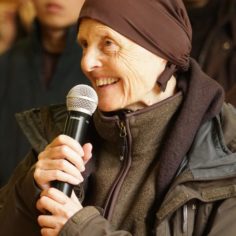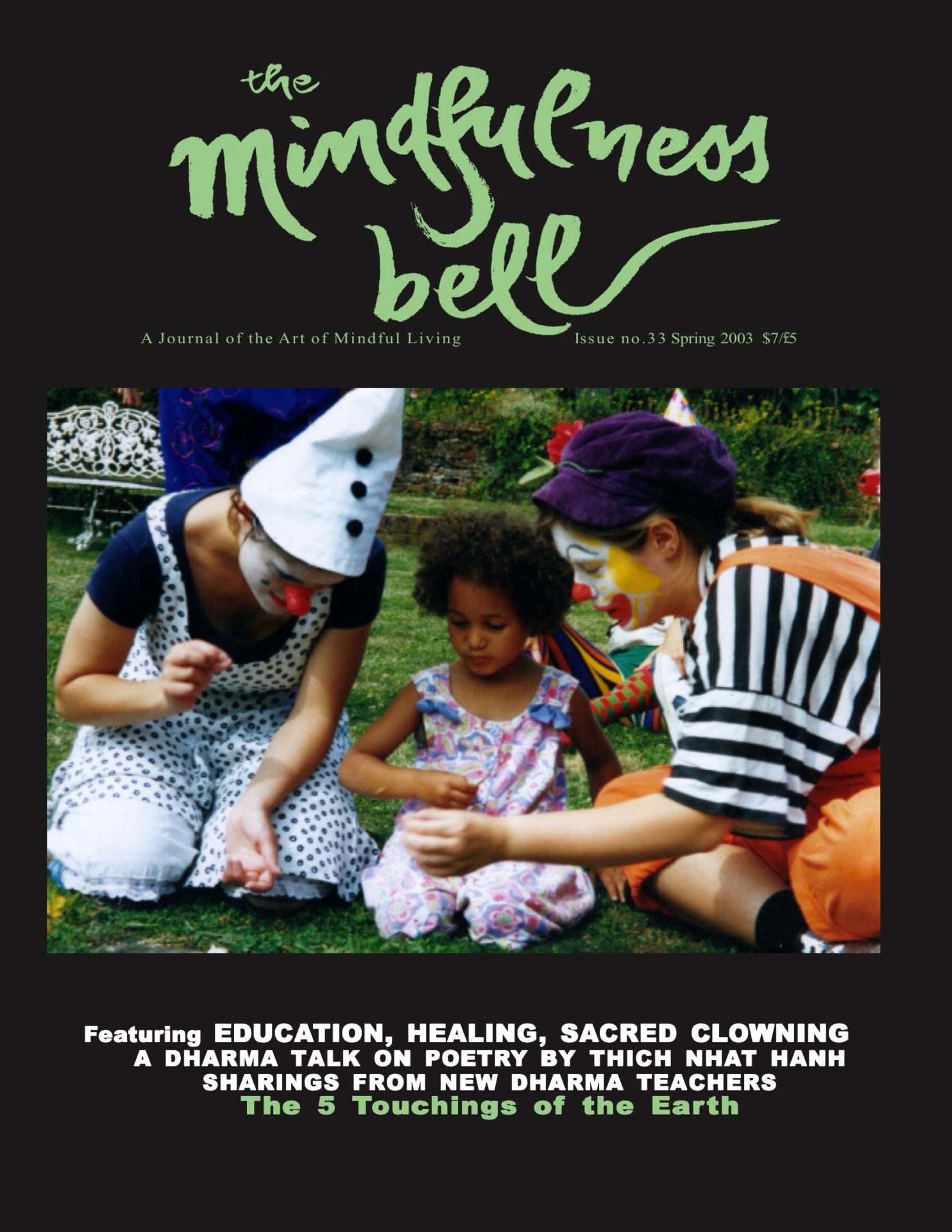By Sister Annabel Laity in March 2003
At Maple Forest Monastery, June 25, 2002
Photography by Jan Mieszczanek
This is enough, I know it well. This is enough, I don’t need more. The call of the bird In the bleak gray sky Is the bright pink rose in a sea of green. This is enough. I thought I needed more But now I know I am so rich.
By Sister Annabel Laity in March 2003
At Maple Forest Monastery, June 25, 2002
Photography by Jan Mieszczanek
This is enough, I know it well. This is enough, I don’t need more. The call of the bird In the bleak gray sky Is the bright pink rose in a sea of green. This is enough. I thought I needed more But now I know I am so rich. My teacher, my Sangha, Are precious jewels. Every moment a gem, alive or dead. Health and sickness are precious gifts, Doors of the practice for all to learn. The great living beings are always there To guard and to guide and bring us home. You are enough, you know it well. No need to do more, just come back home! All that you want is already there, Breathe and take a step to see your home!
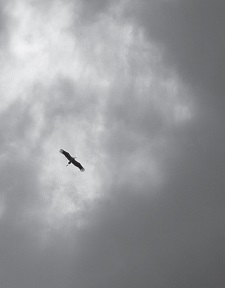
Dear Sangha, today is the 25th of June in the year 2002, and we are in the Buddha Hall of the Maple Forest Monastery.
This morning I tried to find a new way to walk up to the Buddha Hall from where I was sleeping, and I lost myself in the heart of the forest! I was thinking, that I should not arrive in time for the sitting meditation that morning and maybe not even for the Dharma talk! I would go a certain distance and then I would have to turn back because the path was blocked by many wild rasp-berry brambles. Suddenly, my mind became very still. I did not know why, it just happened like that. I looked up, and I saw the Buddha Hall. I was just below it. That experience showed me that I often think that what is going on in my mind is disconnected from what is happening in the world. I perceive something outside of my mind. But now I see that the Buddha Hall is also in my mind, and the Buddha Hall symbolizes quiet and peace. When my mind is quiet and peaceful, then the Buddha Hall manifests itself. The hall was so beautiful with the white roof against the blue sky and the sun shining on it through the trees.
Dear Sangha, the practice of tri tuc in Vietnamese, means knowing we have enough. This has become a Buddhist practice, but in fact it was taught by Confucius. Confucius said that the important thing is to know that we have enough. The expression used by Confucius has the Chinese word tri meaning to know, to have understanding, or wisdom. Knowing when we have enough is wisdom. As long as we think that we do not have enough, we shall not have enough. When we know that we have enough, we have enough.
As a Buddhist practitioner, whether monk, nun, layman, or laywoman, knowing enough is an important part of the practice. In the Christian tradition when people take what is called the vow of poverty, it also means knowing enough. This practice belongs at least to Confucianism and Christianity as well as to Buddhism. It is a practice that our world needs very much at this moment.
Knowing enough is not just knowing enough materially – which is very important – but knowing enough spiritually and emotionally, too. Knowing that we have enough materially is based on knowing that we have enough emotionally and spiritually. Often it is an emotional need which craves more material things. Our craving comes from the feeling of insecurity rather than from a material need. That is why we have to practice mindfulness of our emotions in order to reach the root of our desire for material things. I wrote a very simple song about knowing enough. (see above)
When I feel discontent I need to look deeply at my discontent in my daily life. To do this I practice sitting still. As I sit still I begin to feel satisfied with the richness of my life. It is a very gray day with no sunshine, and I could think that the gray sky is not enough, and I need to have the sunshine. I hear the bird call through the sky, and I see that the gray sky is quite enough. The gray sky holds the call of the bird. And although the sky is so gray, there’s a pink rose, it’s very bright, and the grass is very green. The gray sky shows up the pink rose and the green grass. So I feel grateful for the gray sky. Looking deeply I see that the blue sky is always behind the gray sky. So I say to myself, “Well, this is quite enough.”
My thinking in the past made me say, “I need more.” But now I understand that I’m a very rich person already. I have an enlightened, awakened person to be my teacher, to show me the way. I have the Buddha, and all the ancestral teachers. I have my Sangha. It’s the most precious thing. One reason why my Sangha, my teacher, and my ancestral teachers are so precious is because they have taught me to be able to dwell in the present moment. The present moment becomes a most wonderful gem. Every moment is a gem.
The Treasures of Sickness and Death
I could think that when someone I love dies, I don’t have enough, because I have lost the person I love. But when I live deeply the present moment, I know that without death I cannot possibly be alive. When you walk through the forest, and see the dead leaves making room for the green leaves, it is so clear. In Australia, in forests of a special kind of eucalyptus, the seeds will only open and the new trees will grow when they are subjected to intense heat. So the forest fire makes the new forest possible. Without death there cannot be life, for death is something very precious. Death is a precious gem.
In my Buddhist meditation I have learned to look deeply into my fear of death, sickness, and old age. When I say that health and sickness are precious gifts, it’s because so many people who have come to me and have been sick have told me that it is the most precious thing that has happened to them. When we stand on the outside and we look in, without the experience of the people who tell us that, we say, “How can they say that ill-health is the most precious thing?” But that is what people have said to me. When I have been sick I have always been happy to be well again. Having been sick is an opportunity for me to appreciate good health and a wonderful opportunity to begin anew my life anew.
In the past people said that children have to be sick with measles, mumps, chicken pox, to develop an immunity to these diseases and not contract them when they were older when it would be much more serious. Today scientists have developed vaccines so that it is not necessary to go through the sickness in order to be immunized. Since scientists have seen the suffering they have compassion and do not want it to continue any longer. Without suffering there cannot be compassion and without compassion there cannot be happiness. When we know how to practice when we’re sick, then sickness can become a very precious gift. Although the experience brings us painful feelings we learn so much about ourselves and the great beings are always there to guard and to guide and to bring us home.
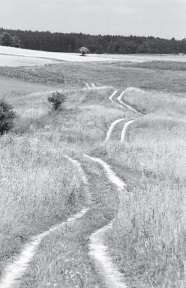
Faith in the Great Beings
I have faith that there are always great beings, the bodhisattvas, and I have that faith partly because I’ve recognized that in myself and all members of my sangha there’s a bodhisattva. The doctors in Médecins Sans Frontières, Doctors Without Borders, are bodhisattvas. They do not confine themselves to helping people in their own country, but go to the countries where there’s the least medical supply, the least favorable circumstances for curing disease. There are also teachers without frontiers. Somewhere in the world there are always great beings who can show me how to love and understand. In myself there is also that great being, although it has not yet flowered fully.
You Are Enough
You are enough, you know it well! We think that we are not enough yet. We have to be something better. We have to go somewhere, do something in order to be enough. We don’t think we are enough just as we are. Not only do we have to know that this is enough, we have to know that I am enough, or you are enough. That is also a kind of wisdom.
In Buddhism one of the doors of liberation is called wishlessness or aimlessness. It means I know that I’m enough. We have the tendency to think, “If I could do more I would be enough, I would be better. I have to be doing more all the time!” But no, we have to say that I am enough already. You don’t need to do in order to be enough. Our world needs people who are, more than people who do, right now. We’ve been taught, “Don’t just sit there, do something.” But our teacher in Plum Village says, “Don’t just do something, sit there!” Our teacher has also told us how to look deeply into what is called our habit energy. My habit energy wants me to do something, to do more. He asks us to look where that habit comes from. It partly comes from what we have been taught and it is also handed down to us from our ancestors in our consciousness.
Transforming Our Habit Energy
In Buddhism we say we do not only receive our body from our ancestors, we also receive our consciousness, because our body and our consciousness interare. Our consciousness is part of our body and our body is part of our consciousness. We inherit so much more than our bodies from our ancestors. We inherit habit energy and consciousness. Maybe our habit energy to do something comes from a time when our ancestors needed to work very hard. If I imagine that I have come from Europe to New England, and I was one of the first settlers, I would probably have to work very hard in order to be able to have enough to survive. I have to plant this, I have to store this, I have to prepare this, in order to have enough for the winter. So taking care of the future in order to survive would become a very important internal formation with me. In times of suffering and stress, we create internal formations, knots in our consciousness, which we can hand on to future generations if we don’t know how to untie those knots.
Here is an example. Plum Village is our practice center in France. Every year there is a retreat that lasts for a month. Many, many families come and practice together, children and parents. We teach the children, “When you’re angry, don’t say anything, don’t do anything. Just breathe deeply, because if you say or do something you may regret it afterwards.” Some of the children, especially those who have come every year, learn how to do that. When they feel anger come up in them they can close their eyes and breathe deeply. Closing the eyes is an important point, because as long as you look at the person who is making you angry, it waters the seed of your anger. So you close your eyes, close your ears, close everything, close your thinking, just breathe.
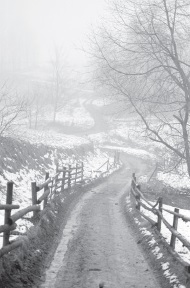
In one family, the young boy had many difficulties with his father. This difficulty probably arose because his father came from a different culture than the culture the boy had been brought up in. His father had the tendency to be angry whenever the boy fell down and hurt himself. The son would say, “ I can understand my father being angry if I do something wrong, but I can’t understand my father being angry when I have done nothing wrong.” He thought that a good father would take pity on him and help him when he fell down. So he had a strong internal formation about his father.

One day at the retreat the boy was with his younger sister. She was playing in the hammock with another little girl and the hammock tipped and they fell out. When his little sister hit the ground she cut her head and it was bleeding. The brother was standing nearby and he saw all this, and he felt very angry. He wanted to shout at her, “How stupid! Aren’t you big enough to know better?” But fortunately, he had learned to shut his eyes when he was angry. He breathed, and he walked away from the scene. He thought the best thing he could do was move away from the scene while other people took care of his little sister.
He walked into the forest slowly, he looked into his situation to realize the truth of what was happening, and he saw that this anger was his father’s anger. He didn’t want to be angry, but he was angry because he had inherited that habit energy. He then realized that the reason his father was angry with him when he fell down was because his grandmother or grandfather used to be angry with his father when his father fell and hurt himself. No one in the family had yet managed to transform this habit energy. The young boy saw that if he was not careful, when he had his own children, he would be the same, and after him his children would continue to be the same. If he could transform this habit energy in himself he would not have to hand it on to his own children. He also wanted to talk to his father about the understanding he had come to that day. When he was able to talk to his father he was able to become his father’s friend.
With mindfulness practice we can undo the knots we receive from our ancestors. When we undo those knots we do it not only for our self, but we do it for our ancestors, because our ancestors are still alive in us, and we are their continuation. It is a simple, and essential part of our practice.
There’s no need to do any more in order to be enough. We can undo the knots of always having to be doing something. We practice for our ancestors, but we also do it for our descendants, for our children and our grandchildren. Our world needs people who are, more than people who do.
When we can be with nature, we realize how precious it is, and we automatically take good care of our environment, preserving nature. Every morning before breakfast in the Green Mountain Dharma Center Sister Susan sits outside contemplating the mountainous scenery. It does not matter what the weather is like; rain, snow and wind may come but she is still there. For her that is a time of being. She is there for the mountains and the mountains are there for her. Someone who is as close to nature as that will never take thoughtless measures which will harm the environment. Our ancestors, who had more time to be, did not behave thoughtlessly towards the environment. When we are too busy to be with nature we do not recognize how precious it is, and therefore we are not in a position to preserve the ecology of our planet earth.
Where is My Home?
You don’t need to do any more. Just come back home. A Plum Village motto is, “I have arrived, I am home.” You might like to ask, “Where is my home?”
One time the Brahmins in India came to the Buddha and they said, “In our religion we aspire to live with the Brahma, the creator-god. Can you teach us how to do that?”
So the Buddha asked them a question. He said, “What are the qualities of Brahma?”
They answered, “The qualities of Brahma are loving kindness, compassion, joy and equanimity.”
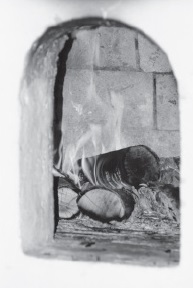
The Buddha told them, “If Brahma is practicing loving kindness, compassion, joy and equanimity, and you want to live with Brahma, you will have to do the same. When you practice loving kindness, compassion, joy and equanimity you will already be living with Brahma.” These four qualities are called the Brahmaviharas the abodes of Brahma, and that is the address of Brahma.
The Buddha also has the qualities of compassion, love, joy and equanimity. The address of Brahma is also the address of the Buddha. In a place where these qualities abound we feel completely secure and our true home is where we feel secure. To help us develop love and joy we have to practice mindfulness. To practice mindfulness is to be able to live the present moment with deep awareness.
The Greatest Security
We have a deep insecurity. It makes us feel that we are not at home here and now, that here and now is not safe. We have to invest in the future. We have to safeguard to make sure that the future is okay, and then we’ll be secure. We sacrifice here and now for security in the future. If we look deeply at the world as it is, is there really any security? Can we guarantee our security for the future? Can anyone guarantee that security? If we look deeply we see they can’t. Do you know anybody who doesn’t die? We tell ourselves maybe, “Oh, I won’t ever die!” Do you know anyone who’s never, ever been sick? I think it would be difficult to find that person. Is there anybody who doesn’t day by day get a little bit older? All these things happen. They are the truth. They are the reality. We have to accept that.
With mindfulness we recognize that, “All that I cherish, everyone I love, is of the nature to change, and we cannot avoid being separated from each other.” That’s true. Nothing is secure. We know we have to be separated from our loved ones, and when we meditate deeply like that, it has a very positive effect. It is not negative at all. The positive effect is that we see that our loved ones will not be always be here, and so we love them even more. We do our best for them today because we know that tomorrow may be too late.
When we practice the meditation on loving kindness we aspire first of all, “May I be happy, peaceful and light in my body and my spirit. Then we meditate: “May the one I love live in safety and security.” Finally we aspire: “May the one who has made me suffer be happy, peaceful and light in body and in spirit. We wish for all beings that they live in safety and security, because we know that is our deepest desire. We see clearly that if it is my deepest desire to be safe and secure, it must be the desire of other beings. Even of the tiny little ant.
The other day an ant crawled onto my toothbrush. I was not very happy with that ant. I wanted to clean my teeth, but there was an ant caught up in the bristles of my toothbrush! Probably there was something sweet in the toothbrush. So I banged my toothbrush rather hard to knock the ant out, and the ant fell out of the toothbrush and was quite dizzy. The ant went around and around in circles as if it was dizzy. I looked at that ant and I suddenly remembered that that morning when I woke up I had said a little poem to myself, and that poem had gone something like,
Morning, noon, and night,
all you little insects,
Please look out for yourselves.
If by chance
I happen to step on you by mistake
May you be reborn
in a pure land of great happiness.
I suddenly thought, I said that poem this morning and what did I do here? Knocked the ant till it became dizzy! I looked at the ant and I breathed on it, saying the name of Avalokiteshvara, the Bodhisattva of Compassion, and the ant said to me, “Did I really deserve to get a knock on the head like that, for crawling onto your toothbrush?” When I heard the ant say that, I had to say, “Of course you didn’t deserve it at all.” It’s very clear that even the little ants want to have safety and security. So I make a deep wish, “May all beings be in safety and security.”
The chant on happiness goes, “Although there is birth, old age and sickness, now that I have a path of practice, I have nothing to be afraid of.” The greatest security is the practice of mindfulness. I am secure because I know what I am doing, so that I’m less likely to have accidents. But accidents can always happen, even if I know what I am doing. That is part of my karma, part of the fruition of my actions, that things will not always go right. But, since I have the practice, even when things go wrong I have a kind of security. That is the security that I wish for all beings to have.
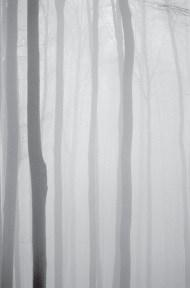
Enjoying Conscious Breathing
That is my home, the practice of mindfulness, to be in the here and the now. If I can enjoy my breathing, I am in my true home, my Brahmavihara, my Buddhavihara. Why do I practice conscious breathing? Is it because the teacher says I have to? Is it because the Buddha says people have to practice conscious breathing? Is that why I practice it? Or do I practice my conscious breathing because I enjoy it? I feel that conscious breathing is to be enjoyed.
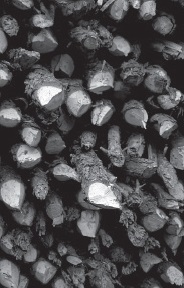
One time when some of the monks were not practicing correctly, the disciple Ananda said to the Buddha, “They practice the wrong path that has brought them much suffering and brought the Sangha much suffering.” The Buddha said, “Ananda, did no one tell them how to enjoy their breathing?” Because the Buddha had so many disciples, he could not be with them all. It was up to the eldest students like Ananda to show the younger students how to enjoy their breathing.
When we enjoy our breathing we do not expect a result in the future, because we already have the result right now. It is the same with our mindful steps; stepping into the present moment we have the result right now. We enjoy it right now. All that you want is already there. Breathe, and take a step, to see that you’re home.
This is enough. We see everyone we love, and everything we cherish as very precious, because we know that it will not always be there. As far as relative time and space are concerned they will not always be there. With conscious breathing we look even deeper and we recognize our loved ones in new forms. They just change their appearance, like the water. You may say, “Oh, my dear cloud, you’ve gone,” but in fact the cloud is still there in the rain. You go to the lake in the early morning when the sun begins to rise, you see the mists are evaporating from the surface of the lake, and that is yesterday’s rain going back to be today’s cloud again. No increase and no decrease is the teaching of the Prajnaparamita and that is why what we have is enough.
Sister True Virtue (Sister Annabel) is the Abbess of Green Mountain Dharma Center in Vermont. Transcribed by Greg Sever. Jan Mieszczanek practices photography in her homeland of Poland. She says, “I met Thay one lazy, warm and sunny day. I was sitting in my garden and I was reading Peace is every step. That was a five years ago. Today I take a lot from Buddhism. I try to help the people around me, including myself, my two daughters, and my grandson to find happiness.”
